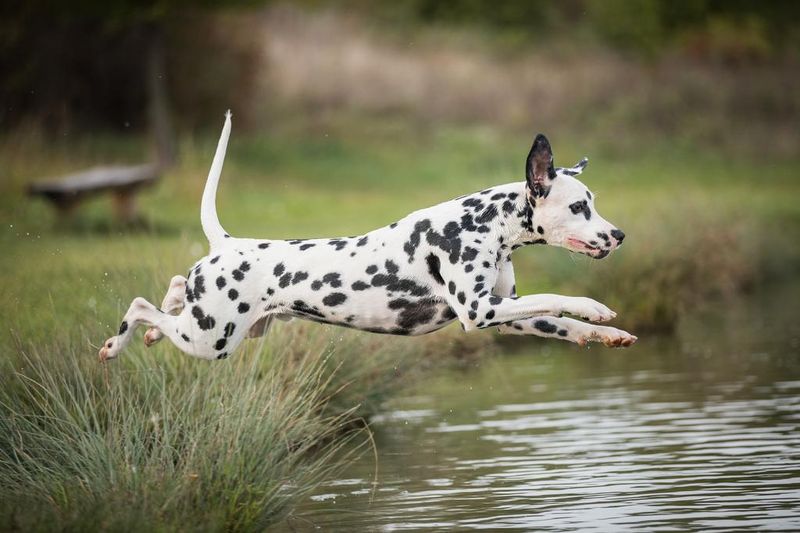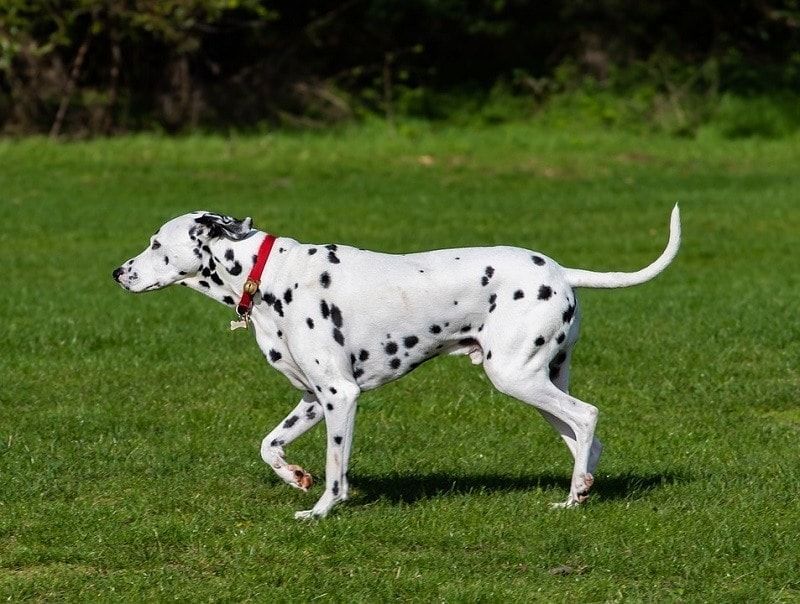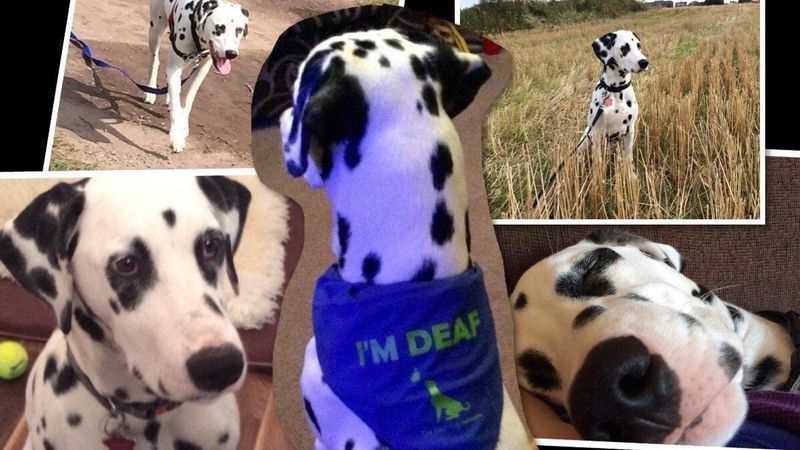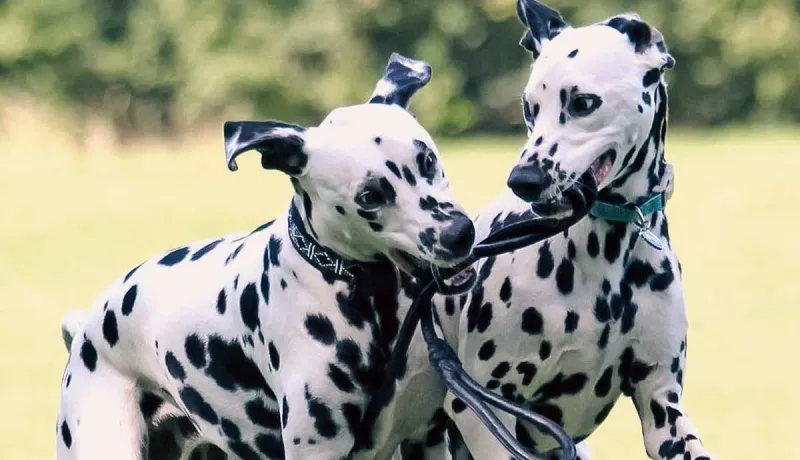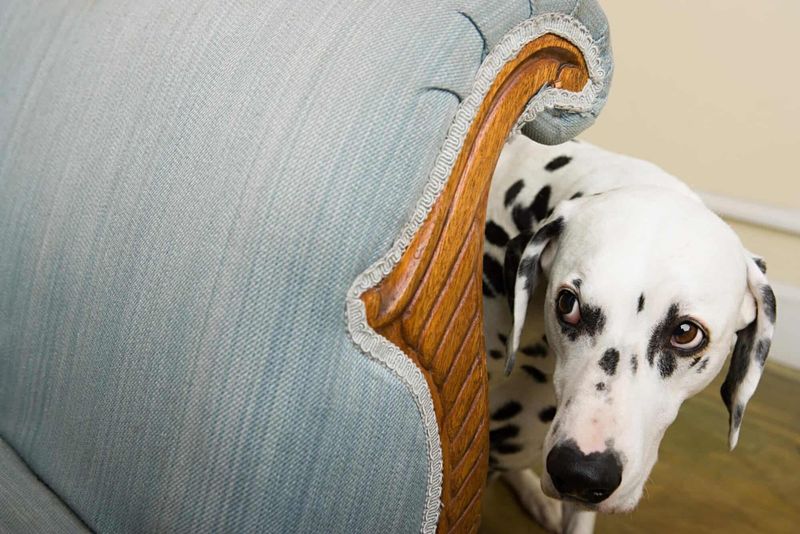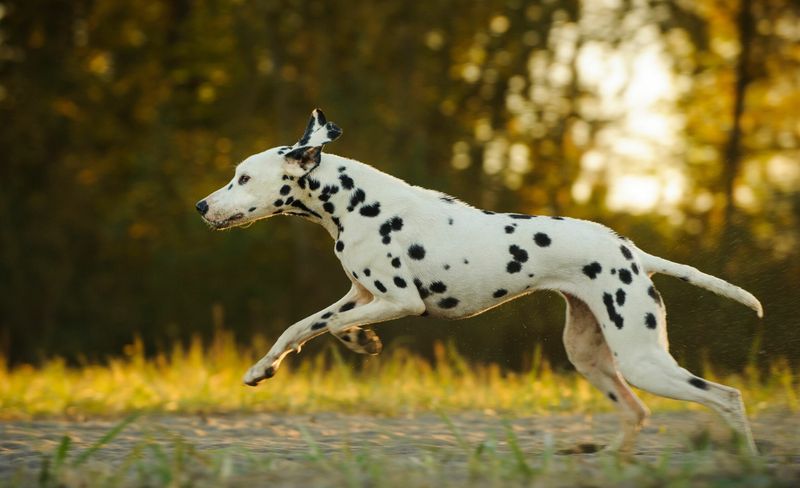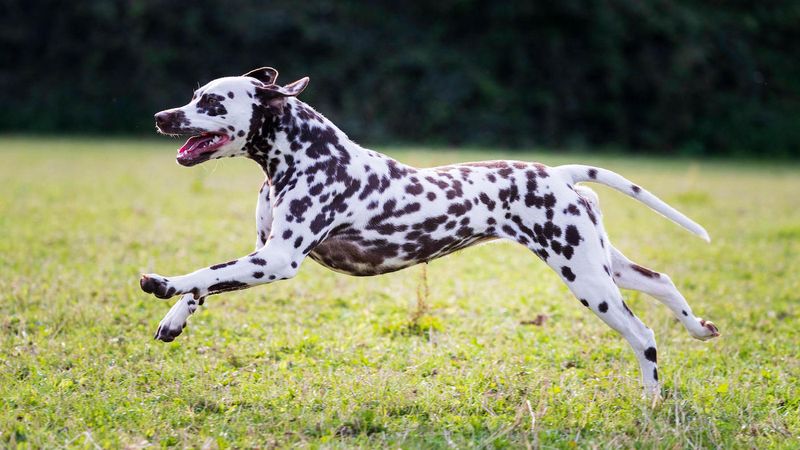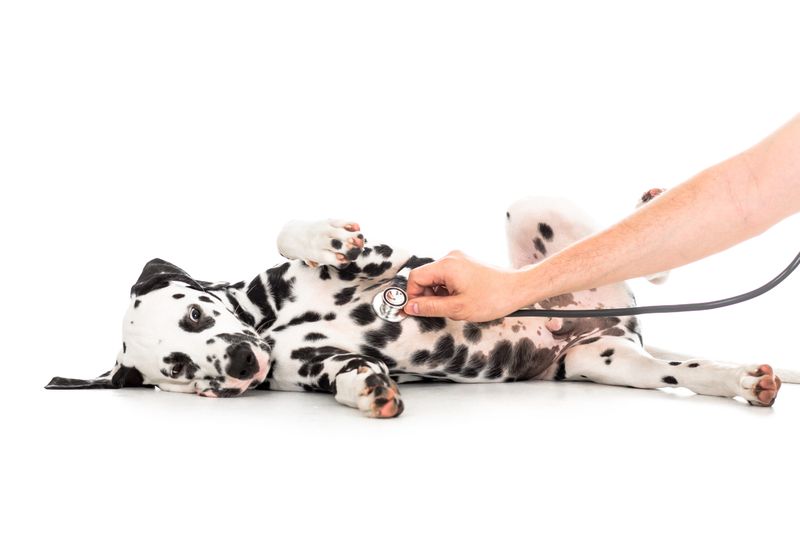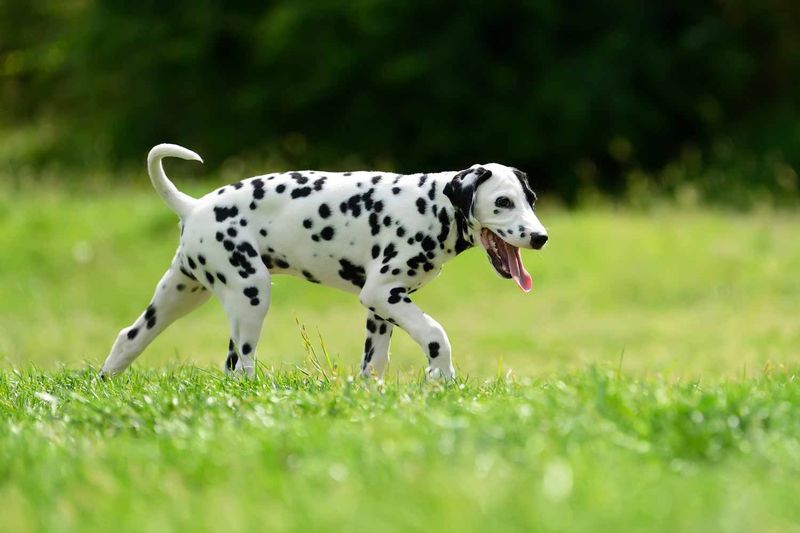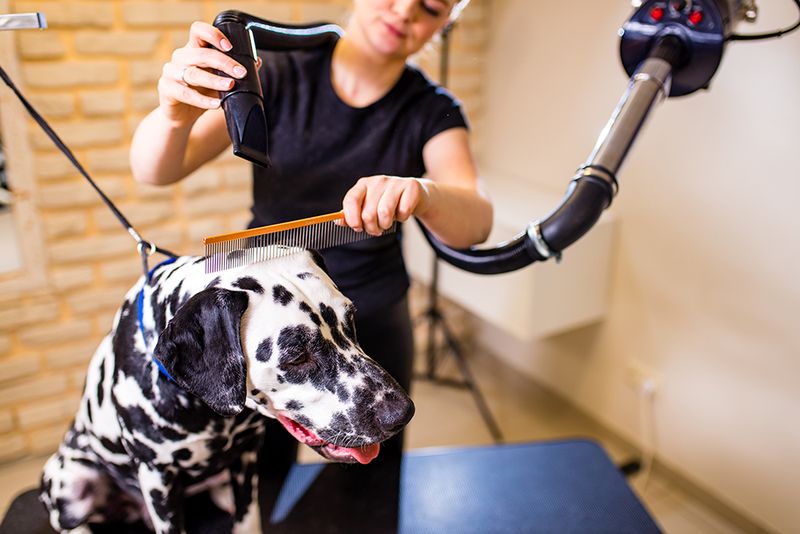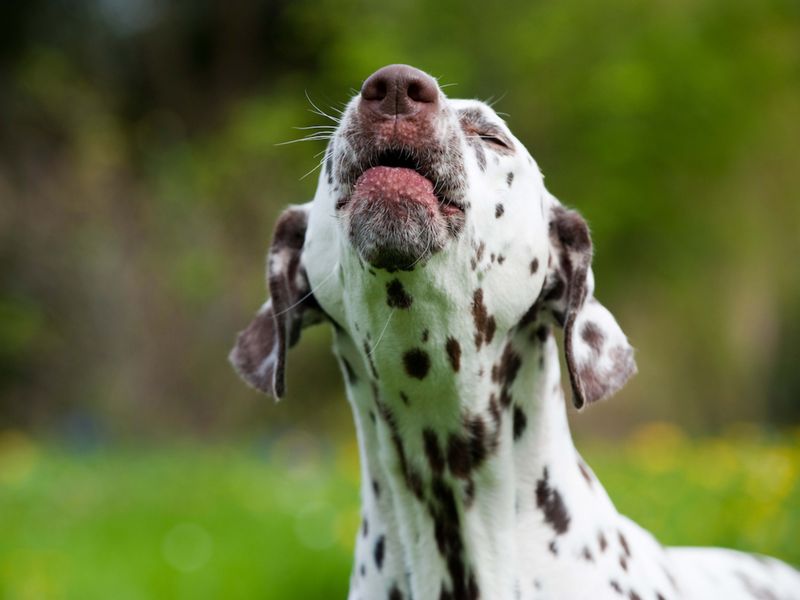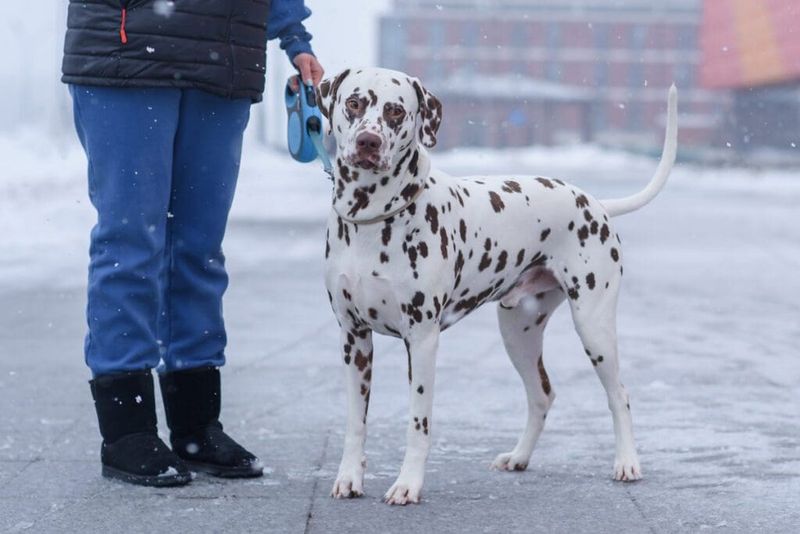Dalmatians, with their iconic spotted coats, have been popularized by movies and media as charming pets. However, beneath this appealing exterior lies a breed that may not suit every household. Known for their high energy and stubborn nature, Dalmatians require a specific environment and dedicated training. In this blog post, we explore 15 reasons why Dalmatians may not be the right choice for everyone.
High Energy Levels
Dalmatians are known for their boundless energy. They require constant stimulation and exercise to stay happy and healthy. If you’re not an active person, keeping up with a Dalmatian can be a daunting task. Their insatiable need for attention and physical activity can overwhelm those not prepared for such a commitment.
Without sufficient exercise, Dalmatians may become restless and destructive. They thrive in environments where they can release energy frequently, making them unsuitable for apartment living. Investing in a Dalmatian means dedicating time to regular walks, playtime, and mental challenges.
Stubborn Streak
Every Dalmatian owner will attest to their dog’s stubborn nature. Training a Dalmatian requires patience and consistency, as they are known to test boundaries at every turn.
Their independent spirit often leads them to ignore commands, leaving inexperienced owners exasperated. This streak of defiance can be challenging, especially for first-time dog owners.
Understanding a Dalmatian’s mindset and employing positive reinforcement techniques are crucial. If you desire a dog that readily obeys, a Dalmatian might not be your best match. Their obstinance requires a steady hand and unwavering persistence.
Potential for Deafness
A lesser-known fact about Dalmatians is their predisposition to deafness. Approximately 30% of Dalmatians are affected by this condition, which arises due to a genetic trait linked to their coat color.
Deafness in Dalmatians can pose significant challenges for training and communication. Owners must often resort to hand signals or specialized training methods to engage with their pets.
Prospective owners should be aware of this risk and prepared to adapt their approach. Deaf Dalmatians can lead fulfilling lives, but they demand extra patience and understanding from their humans.
Frequent Shedding
Despite their short coats, Dalmatians are notorious for their shedding. This breed sheds consistently throughout the year, leaving fur in their wake wherever they go.
For those who prefer a tidy home, a Dalmatian’s shedding can be a significant drawback. Regular grooming and cleaning are essential to manage the constant shedding.
Investing in quality grooming tools and maintaining a consistent cleaning routine will help, but it’s a commitment that not everyone is ready to make. If cleanliness is a priority, think twice before bringing a Dalmatian into your home.
Sensitivity to Diet
Dalmatians have unique dietary needs due to their predisposition to urinary stones, a condition linked to their metabolism. Feeding them the wrong diet can lead to serious health issues.
Owners must be vigilant about providing low-purine foods and ensuring their dogs stay hydrated. This sensitivity means that regular store-bought dog food may not be suitable.
Understanding their specific nutritional requirements is crucial. Prospective owners should be prepared to invest in specialized diets, as well as consult veterinarians regularly to monitor their Dalmatian’s health.
Need for Socialization
Dalmatians thrive on social interaction and can become anxious if left alone for extended periods. They crave companionship, whether it’s with humans or other dogs.
Unsocialized Dalmatians may develop behavioral issues, such as aggression or anxiety. Early exposure to different environments and social situations is essential.
For those unable to meet these social needs, owning a Dalmatian can be challenging. They require a social lifestyle, making them unsuitable for individuals who are frequently away from home.
Unpredictable Temperament
Dalmatians possess a temperament that can be unpredictable. While some are gentle and loving, others might display aggression or anxiety under stress.
This variability makes it hard to predict a Dalmatian’s behavior, particularly around strangers or in new situations.
Consistent training and early socialization can help mitigate these tendencies, but prospective owners must be cautious. Understanding the potential for sudden mood swings is crucial when considering this breed. A Dalmatian’s temperament may not mesh well with families seeking a consistently calm pet.
Strong Prey Drive
With a history as carriage dogs, Dalmatians have retained a strong prey drive. This instinctual behavior can lead to chasing smaller animals, which may be problematic in certain environments.
Managing this drive requires vigilance and training. Owners must be cautious during walks, as Dalmatians may dart off unexpectedly.
For those living in neighborhoods with lots of wildlife, this trait can be particularly concerning. Understanding and managing a Dalmatian’s natural instincts is essential for a harmonious living situation.
Demanding Exercise Regimen
Meeting a Dalmatian’s exercise needs is not for the faint-hearted. They require rigorous daily workouts to maintain their physical and mental well-being.
An under-exercised Dalmatian can become restless and develop behavioral issues. Owners must commit to active lifestyles, incorporating varied activities like running, hiking, or agility training.
Those unable to meet these demands may find themselves overwhelmed. If you’re seeking a low-maintenance pet, the Dalmatian’s exercise requirements may prove too taxing.
Prone to Health Issues
Dalmatians are susceptible to certain health problems, including hip dysplasia, allergies, and bladder stones. These issues demand regular veterinary checkups and proactive management.
Financially, the cost of medical care for a Dalmatian can add up. Insurance is advisable, but potential owners should prepare for unexpected expenses.
Understanding the breed-specific health risks is essential when considering a Dalmatian. While they lead active lives, their health challenges require attention and resources that not every owner can provide.
Lack of Adaptability
Unlike some dogs that adapt easily to various living conditions, Dalmatians thrive best in environments with ample space. Their need for room to roam makes them ill-suited for apartment living.
This lack of adaptability can be a significant drawback for urban dwellers. Dalmatians benefit from open spaces and a yard to explore, enhancing their overall quality of life.
For those constrained by limited living space, a Dalmatian may not be the most compatible choice. Their spatial needs are a key consideration in providing a suitable home.
Challenging Grooming Needs
While their short coats may appear low-maintenance, Dalmatians benefit from regular grooming to manage shedding and skin health.
Frequent brushing helps control shedding, but professional grooming may be required for optimal care. Their sensitive skin demands attention to grooming products, avoiding irritants.
Meeting these grooming needs requires time and commitment. Prospective owners should consider whether they can dedicate resources to maintaining a Dalmatian’s coat health and cleanliness.
Vocal Nature
Dalmatians are known for their vocal tendencies, often barking to express excitement, alertness, or dissatisfaction. This trait can become disruptive in quiet neighborhoods or apartment complexes.
Training to manage barking is essential but may not completely eliminate the behavior. Prospective owners should be prepared for a chatty companion.
If peace and quiet are priorities, a Dalmatian’s vocal nature could present challenges. Understanding and accepting this aspect is crucial when considering bringing a Dalmatian into your home.
Separation Anxiety
Dalmatians form strong bonds with their families, which can lead to separation anxiety when left alone for extended periods. This anxiety can manifest in destructive behavior or excessive vocalization.
For owners with demanding schedules, addressing separation anxiety requires effort and training. Providing mental stimulation and companionship is key.
Potential owners should assess their ability to meet a Dalmatian’s social needs. This breed thrives in environments where they feel secure and connected, making them unsuitable for those frequently away from home.
High Maintenance
Owning a Dalmatian is a high-maintenance commitment. From their exercise needs to grooming and health care, they demand significant time and resources.
Their spirited nature and specific requirements mean prospective owners must be fully prepared to invest in their well-being. This responsibility isn’t for everyone.
Potential owners should carefully consider whether they can meet a Dalmatian’s demands. If you’re seeking an easygoing pet, this breed’s high-maintenance nature might not align with your lifestyle.

